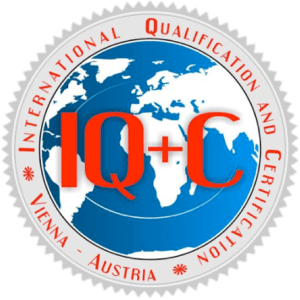
International Standards are recognized in an incredibly broad range of industries. They seek to establish a set of requirements, specifications, guidelines, or characteristics
that will be consistently applied to the product or service that you are procuring from an organization. The purpose is to help improve confidence that what you are paying for will be fit for purpose.
ISO 17100, the set of global standards designed for the translation industry, has raised the bar for translation service providers (TSPs). When customers select a TSP that is 17100-certified, they know precisely what to expect from that company.
Introduced in May 2015, the development of 17100 was a significant milestone for the global translation business; it was the first time that international standards were developed for translation services. The ISO 17100 is based on the European EN 15038, and expands on it to include detailed provisions regarding employee qualifications, client parameters and feedback, and data protection, among others.
Stringent Requirements Mean Stronger Output
Geared toward ensuring TSPs are providing their best work to clients, the parameters set by 17100 make certain that customers are receiving top-quality translations.
To become 17100-certified, TSPs are obligated to consistently meet stringent requirements, including:
– Personnel mandates, which state that translators, proofreaders, and revisers are required to provide documentation that verifies their professional and educational qualifications. In addition, translators are obligated to have more than five years of fulltime experience in the field, as well as a government-issued certificate of competence in specific areas, including research, linguistic, textual, cultural, domain, and technical competencies.
– A data protection system to ensure that all information remains confidential.
– A mechanism to measure feedback from clients, such as customer satisfaction surveys.
In addition, the standards consist of parameters for each step of the translation process, including:
– The initial translation, which requires translators to verify their own work
– A compulsory revision step by another person, other than the first translator
– An optional review step to evaluate the translation project to ensure it meets its purpose
– An optional pre-publication check of the project
– Final verification of the project against outlined specifications
Considerable Benefits for Clients
The benefits of ISO 17100 are significant; clients of TSPs that are not 17100-certified are missing out on an opportunity to work with a company that is committed to high standards. By achieving certification, a business is making a statement that standards matter, and it is holding itself accountable to its customers.
The primary benefits to clients include:
– Top-notch quality assurance, with the minimum requirements set for translators, editors, and project managers
– More confidence in the translation output, since the transition and revision phases are each overseen by different translators
– Agreed upon expectations that delineate the standard procedures of how the project will be managed
– Confidentiality assurance as a result of the mandatory data protection requirement
– Precise translations due to the rigorous guidelines
– Retrievable files, with all work being fully traceable
What You Miss out on with a Non-17100 TSP
Even with the benefits that you receive from a 17100-certified business, you might be wondering whether the certification really matters that much. If you are unsure, consider these points:
– Only 1% of the world’s translation companies are ISO 17100 certified. When you partner with one, you are guaranteed to work with the best of the best. Why settle for anything less?
– By not selecting a 17100-certified business, disciplines like academia and legal, for which accuracy is paramount, are at a great disadvantage.
TSPs without 17100 cannot guarantee qualified language and subject matter experts; therefore, translations may not be linguistically accurate or domain-contextual.
– Without a system of checks and balances, mandated under ISO 17100, errors are bound to slip through, making the final output unreliable.
TSPs are Incentivized Too
Along with clients, the ISO 17100 holds great advantages for the translation companies themselves. As a result of optimizing their processes, businesses should be reducing expenditures by decreasing waste and minimizing errors. In addition, companies benefit from an increase in client satisfaction, because the quality of their translation outputs have improved.
An ISO17100 certified organization also provides employees with ongoing development opportunities, making them feel as though they are strong contributors to the company. Employee empowerment has a direct impact on clients, as productivity and professionalism improves.
When you hire a TSP, you’re essentially letting them be responsible for your work – whether that’s an academic paper, business communication or a professional document. A quality translation adds significant value to your output, while an inaccurate one affects your credibility. By selecting a company that went through the rigorous steps to become 17100-certifed, you know you will be working with a team that has proven its commitment to high quality work. Not only does the certification mean that the TSP delivers precise translations, it also shows a strong work ethic and dedication to its customers.



Leave A Comment